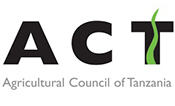The project coordinates and facilitates different value chain actors and stakeholders under a Public Private Partnership (PPP) arrangement. It is managed by the Agricultural Council of Tanzania (ACT). The project intends to complement and upscale achievements made during the previous phase (popularly known as TAP II). TAP II (October 2014-May 2020) was designed to stimulate agricultural growth in Tanzania through commercially-oriented interventions and investments.
Some of the main achievements under TAP II included: increased adoption of climate-smart practices (i.e., CA and SRI technologies) by 86.3% and 55.2%, respectively; increased farmers’ accessibility and applications of farm inputs by 15% and 10%, respectively; increased productivity and profitability by 108.3% for rice and 126.3% for maize; increased access to financial services by 9%; to mention but a few.
The development of the PFS project was a consultative process. This is whereby partners came together to evaluate the progress made under the preceding phase and agreed on areas that needed more interventions whilst maximizing possible synergies. Basically, PFS is the continuation of TAP II that aims to scale up the innovations and interventions from 29 districts (covered in TAP II) to 33 districts in 16 regions targeted to reach 366,900 smallholder farmers compared to 150,000 farmers in the previous phases.
PFS Goals and Objectives
The PFS goal is: Improved Food & Nutrition Security and Poverty Reduction. Income poverty is expected to be reduced by 17 percent and child malnutrition decreased by 5 percent.
Objectives are:
- Increased productivity of smallholder farmers for the 7 PFS crops by at least 14 percent;
- Increased economically viable business opportunities and employment for private sector actors by 30 percent; and
iii. Farming household consumption patterns improved by 30 percent
The project is being implemented over a period of 3 years, from October 2020 to September 2023 with a grant amount of $ 4 Mil.
Project interventions
Main components of the project are to: Stimulate Farmers’ Access to Improved Inputs, Promote Improved Agricultural Technologies, Promote Collective Action amongst Farmers for Economies of Scale, Foster Conservation of Natural Resources, Strengthen Private Sector Partnerships, Enhance Institutional Capacity and facilitate an Enabling Business Environment, Promote Household Micro-investments for Diet Diversification, and Create Demand for Climate Resilient Nutritious Crops.
Implementation Framework/Approach
Since its inception, TAP has relied on partnerships to contribute to its success. PFS will adopt a similar approach where the key mode of operation will be guided by partnership building. PFS management, under ACT, will coordinate and assume a more facilitative role with minimal direct field presence to ensure that these partnerships are strengthened and desired outcomes are delivered.
The project builds on the existing systems and structures of other partners on the ground. The idea is to effectively utilize in-country capacity and knowledge to solve critical value chain constraints. The program has so far identified 35 CSOs, public and private sector partners (domestic, national and international) who, in different roles and capacities, will be involved in the partnership work. A few examples of these partners: CFU (a regional NGO that promotes conservation agriculture); RUCODIA (a local NGO with vast experience in SRI technology); AMBERICO (a local Farmer Organization); PASS (a local financial institution for credit facilitation); SAGCOT (a local organization that promotes inclusive and sustainable agricultural investments)YARA International Ltd (a multinational company specializing in fertilizer production and distribution); RUDI (a local organization specializing in FO capacity building); Lonagro (Tz) Ltd (a multinationcorporationion distributing equipment);ges Vel (an international organization that supports FOs for more commercialized and profitable ways of production and marketing).
Coverage Area and Value Chains
Implementation of the PFS project will be undertaken in 16 regions, namely: Katavi, Rukwa, Mbeya, Songwe, Njombe, Iringa, Ruvuma, Lindi, Mtwara, Morogoro, Dodoma, Manyara, Arusha, Kilimanjaro, Shinyanga and Simiyu. PFS will work on the value chain development of 7 commodities which are: Maize, Rice, Pulses, Sorghum, Sunflower, Sesame and Cotton. Interventions will differ from one commodity to another depending on needs and available opportunities.

